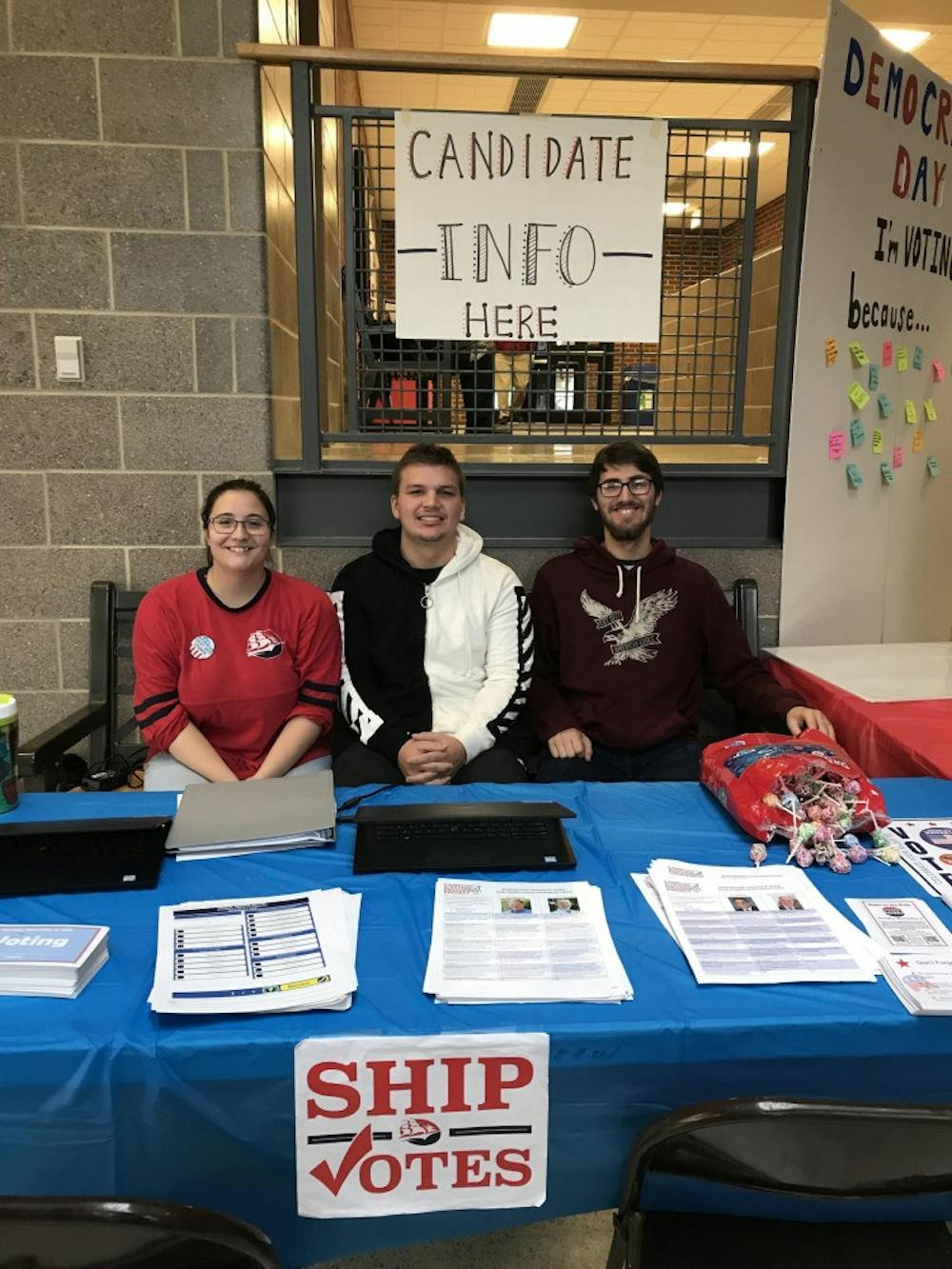Every other year, millions of Americans turn out to vote on the first Tuesday of the month of November. They come from every state and represent people of a variety of backgrounds.
But what is one of the historically lowest-represented groups? Young adults.
Eligible voters between the ages of 18-24 have typically represented less than 30 percent of the national voter population. The Public Religion Research Institute reported in a July poll that only 28 percent of young voters were “absolutely certain” they would vote in the midterm elections, compared to 74 percent of seniors.
The campaign to register as many people to vote as possible became heightened in 2018 as the Democrats tried and succeeded to take back control of the U.S. House of Representatives. The Republicans, meanwhile, kept control of the Senate.
A lack of young person involvement is not a new issue.
In 1976 — one of the first elections in which young people were eligible to vote — only 13 percent of eligible voters turned out. Two years later, the number of voters in the same age category were underrepresented by 50 percent, according to a spring 1998 article in the National Civic Review.
Alison Dagnes, a Shippensburg University political science professor, attributed the gap between young and older voters to political passions stemming from “small majorities.”
“A lot of people don’t care about the midterms,” she said.
The heightened interest of this year’s midterms is not unlike the 1976 elections, however, according to Dagnes.
She said that following explosive reports of Richard Nixon’s involvement and resignation over the Watergate scandal, a large number of “Watergate babies” — newly-registered voters who were angry at Republicans — helped Democrats surge in the polls.
Many Americans today feel similar anger as the Watergate voters, but the “exhausted majority” did not want to be involved with this year’s election.
“There are increasingly more Americans who are turned off by the angry, screaming discourse,” Dagnes said.
According to a More In Common study, 67 percent of Americans are a part of the “exhausted majority” — moderates, the politically disengaged, passive liberals and traditional liberals. Americans in those groups do not conform to any partisan ideology, the study said.
“Most Americans — including both liberals and conservatives — are actually more reasonable than people on the other side are made to think,” said More In Common co-founder Tim Dixon in a press release.
Social media, Dagnes said, is another deterrent from voter turnout. Although Facebook and Twitter have vowed to eliminate “fake news” from users’ feeds, Dagnes said it is too big of an issue for the platforms to tackle.
“The volume is turned up way, way too high,” she said. “There is a widespread distrust of the media.”
Dagnes stressed that the democratic process is still important, despite the reasons Americans give for not wanting to vote.
“When you don’t vote, you’re saying that it’s not worth your time to move the country in one direction or another,” she said.

Students had the opportunity to make campaign buttons throughout Democracy Day, an all-day event on campus.
Damon Watkins, chair of the SU College Republicans, said college students are more aware of what is happening in the political world than many people think.
“People are engaged, they understand what’s going on,” he said. “[But] some people just don’t care about it in general.”
Watkins was a born-and-raised Democrat who became a Republican when he grew up. He emphasized that the divisiveness of the outside world is not representative of life on campus.
“When you start talking to people, they realize you’re not a mean person,” Watkins said.
Ship Votes, SU’s voter registration group, offers students many opportunities to register to vote or gather information on candidates in the months leading up to an election.
The group was founded in 2008 — during a time when students were inspired to vote for the change promised by then Sen. Barack Obama. Ship Votes registered more than 2,000 students to vote that year, according to faculty adviser Catherine Clay.
“In the years since then we do want to sustain Ship Votes through the presidential and midterm years,” Clay said.
But student engagement has continually dropped since then, according to Clay. Many of the students who choose to engage with the group are political science students who are already interested in politics.
This year, the group registered about 550 students by the beginning of October.
Despite the drop, the argument can be made that Ship Votes has grown in a lot of ways.
It is a volunteer, grassroots effort that combines faculty and students to register students and educate them about candidates. Clay said Ship Votes volunteers can register about 40 people to vote in 15 minutes.
The group now has four paid student “fellows” who run tabling events, and provide students with voter and candidate information. In the future, Clay hopes that civic engagement is emphasized to incoming first-year students.
For now, though, Clay has one question that serves as the focal point for student voter registration.
“Do you want to shape your own world?”



The Slate welcomes thoughtful discussion on all of our stories, but please keep comments civil and on-topic. Read our full guidelines here.